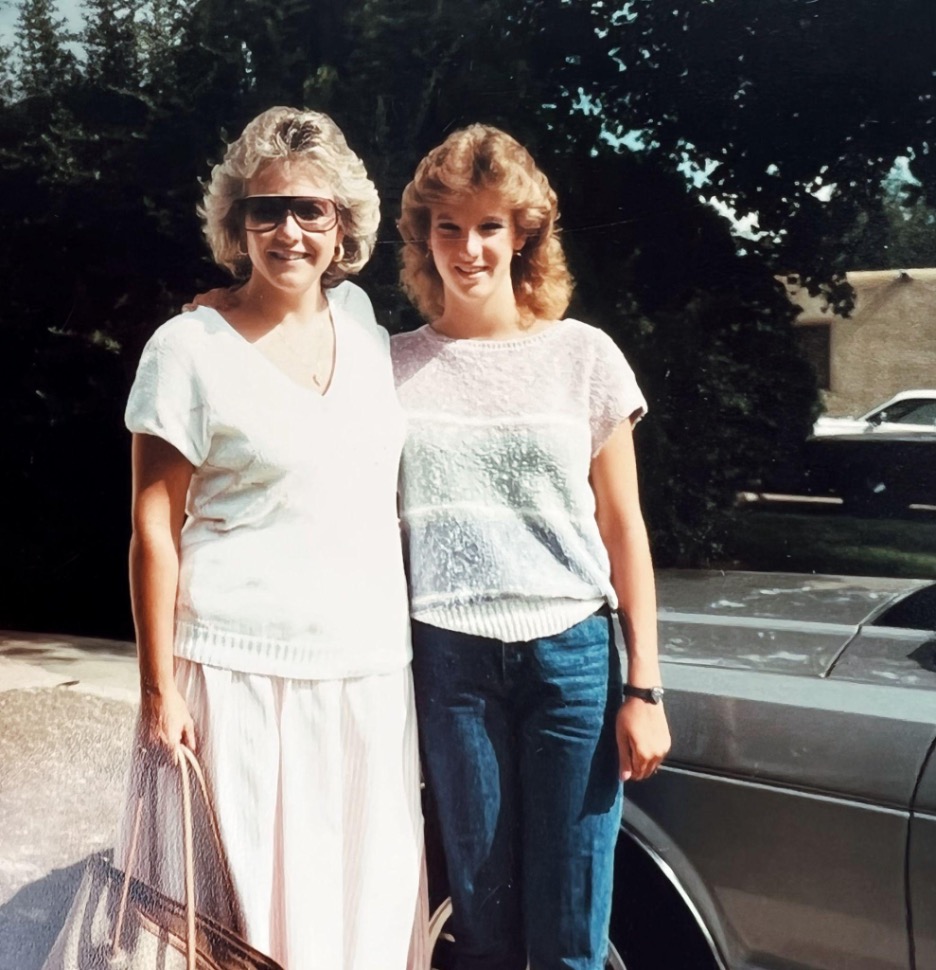I smiled at the familiar magnet on your fridge as I got your water. “Laughter is the best medicine,” it read. I brought your drink to the porch and opened my laptop to continue the interview.
About a week earlier, you called to tell me that the cancer had spread too far and too deep. All your doctors recommended hospice. I asked how you felt, and you said it does not seem real. In my mind, I called upon pragmatism to stratify clouds of emotion, laden with fear, guilt and grief, from definable next steps. I am your granddaughter, but I am also studying to become a physician; I did not want to lose sight of either of these identities as I processed the news.
A few years ago, one of my mentors allowed me to work with him in a specialized psychiatry clinic that provided therapy for cancer patients and their loved ones. In addition to the valuable lessons learned from the patients, I will never forget an article the physician team read during one of their journal clubs. The research described the benefit of reflective end-of-life interviews for hospice patients. Both patients and their loved ones reported feelings of peace and life satisfaction following such interviews. I found hope in thinking about interviewing you during this pivotal time.
“My life is not really that interesting,” you laughed, but I knew that was not true. We started by exploring your childhood. From your parents’ unconventional love story to adventures with your brothers to dating boys you should not have dated in high school, you reminisced on lessons that toughened your skin and helped you learn from mistakes. We talked about leaving your hometown to eventually come back and find your husband. Although you went through a divorce, your two beautiful children taught you what it means to truly love. You worked hard to provide for them and you were well-respected in your impressive accounting jobs. Amidst this, you found time to regularly volunteer. We both smiled thinking about all the times my sister and I would come with you to arrange flowers for your church or deliver meals to people without homes. You have such a kind and sensitive heart, which is why the premature passing of your daughter, my mom, weighed so heavily. But your friends and family swiftly came together to offer support. You reflected in awe of the amazing people in your life, feeling you owed them more than you were able to give. We talked about some of your most valued memories with your loved ones: traveling. From cross country road trips to visit your brother with me and my sister, to trips to the Italian countryside with girlfriends from high school, you could not believe how lucky you have been to hold such cherished memories. By the end, we shared tears thinking about the balance of hardships and joys that molded your rich and fulfilling life.
By combining lessons from my medical journey with my desire to bring you peace and comfort, I learned so much about you and your life. But most importantly, I learned that you laughed. Your eyes lit up, and the fatigue faded as you talked about your lifelong friendships, memories with family and exciting travel stories.
“Oh Ashley, you would not believe how much we laughed. It is so important to have people you can laugh with,” you told me.
And then everything made sense. Time spent with you always offered a grounding but light-hearted reality check that reminded me to find things to smile about. You taught me to face life with bravery because in the tangles of heartbreak, loss and messiness, there will always be something to laugh about. After all, laughter is the best medicine.
This is a letter I planned to share with my grandmother on Mother’s Day; devastatingly, she passed before I was able to read this to her. In publishing this piece, I hope to encourage other medical trainees to reflect on the intersection of responsibilities to our profession and to our loved ones. After starting medical school, especially as the first one of us to graduate college and attend professional school, family members frequently ask about medication concerns, minor illnesses, diet, etc. But my grandmother’s rapidly progressing kidney cancer marked my first encounter with the dying and death of a family member as a medical student. Considering that witnessing the serious illnesses and untimely deaths of several family members drew me to medical school and that I had sought out exposure to palliative care and hospice through volunteering, shadowing and academic electives, I thought I would have been more prepared for coping with the end-of-life experience of my grandmother, both personally and professionally. Instead, I learned a new lesson: loss and grief are not experiences one can prepare for. Each circumstance and each loss is unique. No two deaths will ever be the same. But what has always remained constant for me, both before and during medical school, is the value of celebrating life. So in this piece, I remind myself how privileged I am to obtain such knowledge and skills in end-of-life care as a part of my medical training, but most importantly, I return to my roots by appreciating the family I come from and the lessons learned from the people to whom I owe every success.
Image credit: Custom image provided by the author for this Mosaic in Medicine piece.


